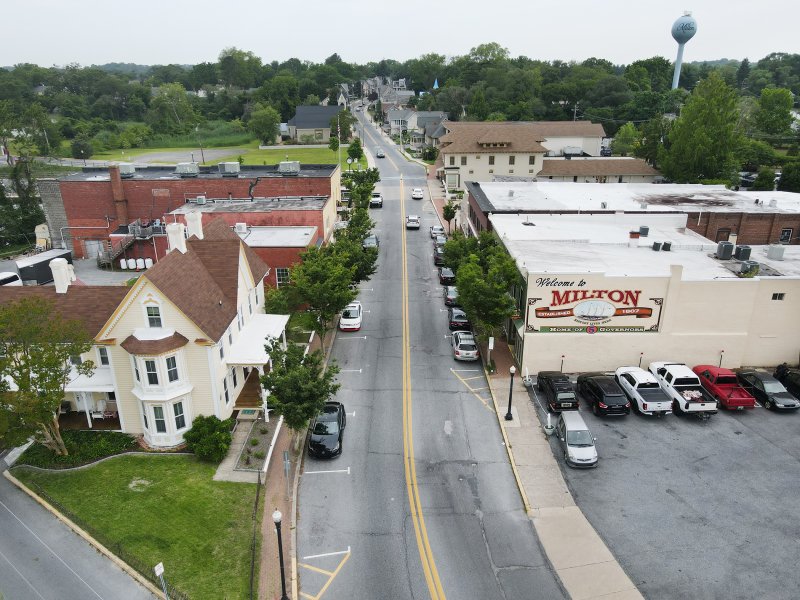The Milton Planning and Zoning Commission submitted an advisory report to town council recommending that short-term rentals be considered a special permitted use within zoning districts where bed-and-breakfasts are allowed.
The issue of short-term rentals in Milton resulted from the rise in Airbnb and Vrbo properties, and concerns this will lead to the town becoming inundated with vacation rentals instead of owner-occupied properties. Town council has expressed a desire to get ahead of the issue before it becomes a bigger problem.
In June, council passed an ordinance setting up a licensing system for people wanting to have short-term rentals. Council then asked the commission to examine how to regulate short-term rentals through the zoning code.
At its Aug. 19 meeting, the commission finalized its report, which suggests making short-term rentals a special permitted use. The commission compared Airbnb-type rentals to bed-and-breakfasts, which are also a special permitted use. Short-term rentals would be eligible for a permit in the R-1, R-2 and R-3 residential districts, in the mixed-use residential and commercial district, in the town center, in the C-1 commercial district, the marine resources district, and the LI-1, light industrial use, and the LLI-1, limited light industrial use, districts.
A special permitted use requires an applicant to provide a legal description of the property, a site plan and any other information related to the proposed use. The application is also subject to a public hearing and a vote by the commission.
In addition, the commission suggested an ordinance include requirements that short-term rental operators to be primary homeowners – to prevent investors from buying and operating homes as short-term rentals – setting a quota on the number of short-term rentals in a given area or on a particular street, requiring a minimum space between short-term rentals, limiting the number of properties a single owner can offer as a rental, and limiting the number of days per year a property can be rented out. Town Solicitor Seth Thompson said these items serve as a menu of things town council can consider in drafting an ordinance.
Bernard Miller, who owns two Airbnb properties in town, said rental owners have not been consulted or asked for their opinions regarding the ordinance. He said the report lacks specifics in how complaints to the town are dealt with.
“When I look at these ordinances, I can’t for the life of me determine what you guys are trying to do,” Miller said. “Other than to make it more difficult for Airbnb operators to operate here in town.”
Commissioner Maurice McGrath said, “What we’re trying to do is get ahead of a problem. A problem that has happened in other towns. So what we’re trying to do is set up a parameter of rules so we don’t have problems like they had in other towns.”
The licensing ordinance, passed in June, defines short-term rental as a residential dwelling unit that is rented for 30 consecutive days or fewer. The maximum occupancy of a short-term rental would be two people per bedroom, with an exception for children 6 years old or younger. The rental must have a local contact person available 24 hours a day to take phone calls about potential problems and to be physically present on the property within one hour. Complaints would be handled at town hall during regular business days or by the police at all other times. Both town hall and the police will have the telephone number of the local contact person. Guests at short-term rental properties cannot hold commercial activities or events open to the public, and the owner is responsible for providing a good neighbor brochure, which the town would provide, to every renter. Advertising for the rental must include information such as the occupancy limits, prohibition on commercial activities and parking regulations.
Three or more violations of town regulations on short-term rentals would be grounds for the unit’s license to be revoked and have a new license delayed by one year.
Ryan Mavity covers Milton and the court system. He is married to Rachel Swick Mavity and has two kids, Alex and Jane. Ryan started with the Cape Gazette all the way back in February 2007, previously covering the City of Rehoboth Beach. A native of Easton, Md. and graduate of Towson University, Ryan enjoys watching the Baltimore Ravens, Washington Capitals and Baltimore Orioles in his spare time.























































